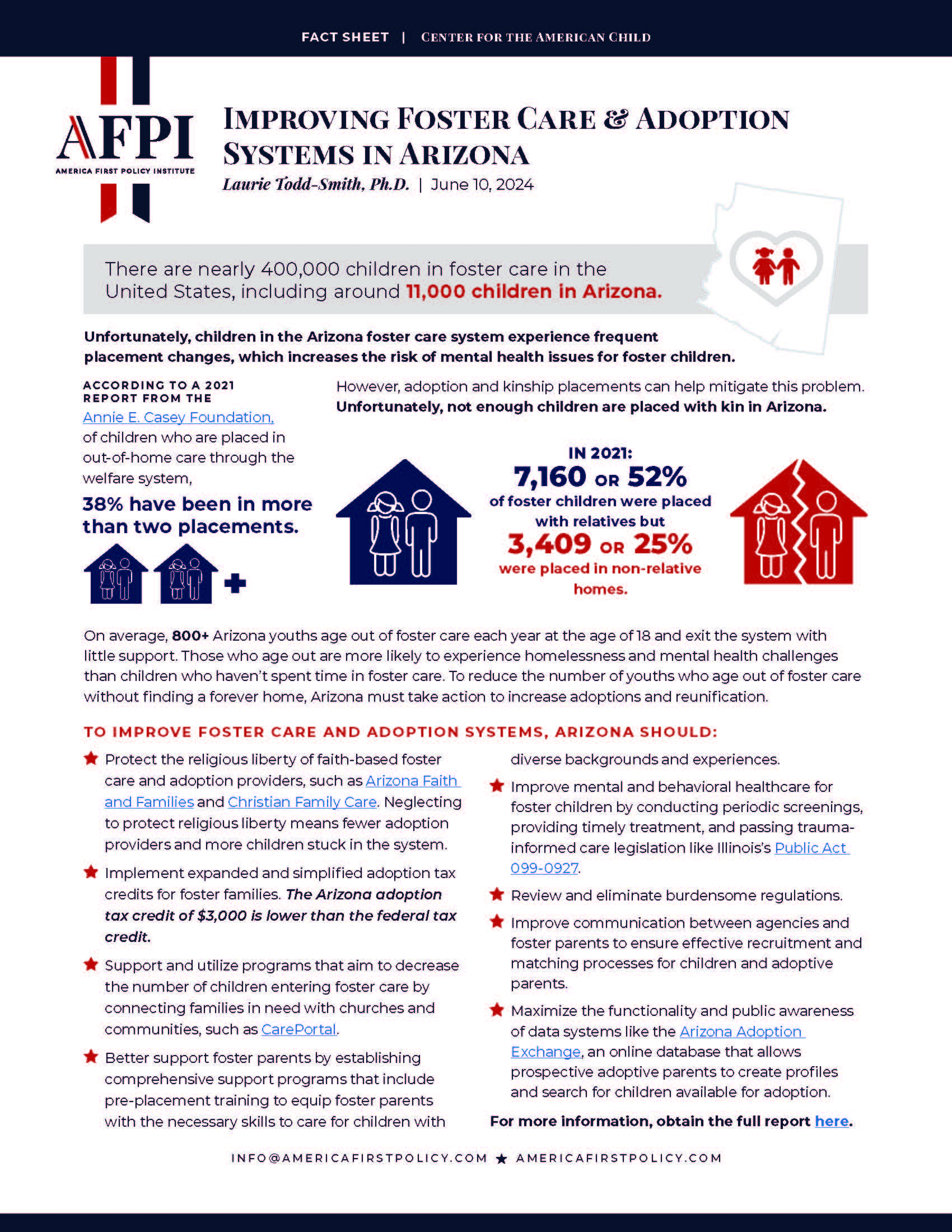Laurie Todd-Smith,Ph.D.
June 10, 2024
Improving Foster Care & Adoption Systems in Arizona
There are nearly 400,000 children in foster care in the United States, including around 11,000 children in Arizona.
Unfortunately, children in the Arizona foster care system experience frequent placement changes, which increases the risk of mental health issues for foster children.
- ACCORDING TO A 2021 REPORT FROM THE Annie E. Casey Foundation, of children who are placed in out-of-home care through the welfare system, 38% have been in more than two placements.
- However, adoption and kinship placements can help mitigate this problem. Unfortunately, not enough children are placed with kin in Arizona.
- IN 2021: 7,160 OR 52% of foster children were placed with relatives but 3,409 OR 25% were placed in non-relative homes.
On average, 800+ Arizona youths age out of foster care each year at the age of 18 and exit the system with little support. Those who age out are more likely to experience homelessness and mental health challenges than children who haven’t spent time in foster care. To reduce the number of youths who age out of foster care without finding a forever home, Arizona must take action to increase adoptions and reunification diverse backgrounds and experiences.\
TO IMPROVE FOSTER CARE AND ADOPTION SYSTEMS, ARIZONA SHOULD
- Protect the religious liberty of faith-based foster care and adoption providers, such as Arizona Faith and Families and Christian Family Care. Neglecting to protect religious liberty means fewer adoption providers and more children stuck in the system.
- Implement expanded and simplified adoption tax credits for foster families. The Arizona adoption tax credit of $3,000 is lower than the federal tax credit.
- Support and utilize programs that aim to decrease the number of children entering foster care by connecting families in need with churches and communities, such as CarePortal.
- Better support foster parents by establishing comprehensive support programs that include pre-placement training to equip foster parents with the necessary skills to care for children with diverse backgrounds and experiences.
- Improve mental and behavioral healthcare for foster children by conducting periodic screenings, providing timely treatment, and passing traumainformed care legislation like Illinois’s Public Act 099-0927.
- Review and eliminate burdensome regulations. Improve communication between agencies and foster parents to ensure effective recruitment and matching processes for children and adoptive parents.
- Maximize the functionality and public awareness of data systems like the Arizona Adoption Exchange, an online database that allows prospective adoptive parents to create profiles and search for children available for adoption.
